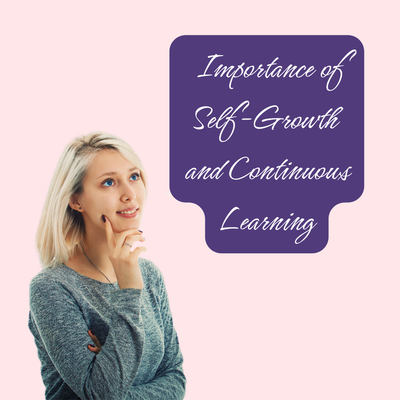
In the hustle and bustle of entrepreneurship, it's easy to be swept away by the perpetual tides of tasks, goals, and deadlines. In this dynamic environment, the mind becomes akin to a browser with too many tabs open, reducing focus and draining mental energy. It's against this backdrop that the concept of mindfulness emerges, an ancient practice with surprisingly modern applications. Mindfulness, a form of meditation, is all about staying present, focused, and consciously aware. Despite its roots in spirituality, science has recognized mindfulness as an effective tool for enhancing mental clarity, reducing stress, and improving decision-making - elements that can significantly boost an entrepreneur's productivity.
At its core, mindfulness involves paying deliberate attention to our thoughts, feelings, and surroundings in the present moment without judgment. This encourages a break from the constant loop of past ruminations and future anticipations that often trap our minds. It might seem counterintuitive to think that 'slowing down' and focusing on the present can enhance productivity, especially in the world of entrepreneurship, where everything seems to be about speed, deadlines, and forward-thinking. However, this is where mindfulness surprises us: by training our minds to focus on the 'now', we develop the ability to concentrate, think more clearly, and make better decisions - all of which lead to increased productivity.
But how exactly does mindfulness work? Neuroscientific studies reveal that mindfulness can physically alter our brains' structure, improving areas associated with cognitive flexibility, attention, and emotional regulation. This neuroplasticity, the ability of our brains to change and adapt, means that mindfulness is a skill we can cultivate with practice. For entrepreneurs, this enhanced cognitive function can translate into juggling multiple tasks, staying calm under pressure, and approaching problems with a clear, focused mind. This can not only result in a higher quality of work but can also lead to the creation of innovative solutions and ideas. Furthermore, by managing stress and promoting emotional well-being, mindfulness paves the way for sustained productivity, protecting against burnout and mental fatigue that can come with running a business. In the following sections, we will delve deeper into the mechanisms through which mindfulness enhances productivity and discuss practical strategies for integrating mindful practices into your entrepreneurial journey.
Let's begin with the most apparent connection between mindfulness and productivity: improved focus and concentration. A mind cluttered with thoughts, worries, and distractions is like a stormy sea, making navigating tasks difficult. Mindfulness helps calm this storm by teaching us to return our attention to the present moment whenever we notice it drifting. Regular practice strengthens our 'attention muscle', making it easier to sustain focus on tasks at hand. This increased concentration allows entrepreneurs to accomplish tasks with greater efficiency and precision, enhancing overall productivity.
Mindfulness also fosters emotional intelligence, a crucial trait for entrepreneurs. Emotional intelligence involves recognizing and managing our emotions and understanding the emotions of others. It's vital for customer interactions, team leadership, and conflict resolution. By promoting non-judgmental awareness of our feelings, mindfulness helps us better comprehend and manage our emotional responses effectively. This heightened emotional awareness can result in more authentic and empathetic interactions, leading to stronger relationships with clients, team members, and business partners.
Another way mindfulness bolsters productivity is through stress management. The entrepreneurial journey is fraught with uncertainties, pressures, and setbacks, which can cause considerable stress. Prolonged stress not only harms our health but can also dampen productivity. Mindfulness, with its roots in meditation, has been proven to reduce cortisol, the stress hormone. It trains us to objectively observe our stressors and reactions to them, allowing us to respond rather than react. This ability to maintain calm and composure in the face of adversity can prevent productivity from being derailed by stress.
Moreover, mindfulness enhances cognitive flexibility, an essential skill for entrepreneurs navigating the ever-changing business landscape. Cognitive flexibility is the ability to switch between thinking about two or multiple concepts simultaneously. It’s the mental agility to adjust our thinking in response to changes, learn from mistakes, and innovate. Mindfulness cultivates this skill by encouraging an open and curious mindset, enabling entrepreneurs to adapt more readily to changes, think outside the box, and devise creative solutions, thereby fostering innovation and growth.
Finally, entrepreneurs can achieve a healthier work-life balance by integrating mindfulness into daily routines. This balance is crucial for long-term productivity and success. Overworking and neglecting personal well-being can lead to burnout, whereas balanced entrepreneurs tend to be more content, motivated, and consequently more productive. Mindfulness can help achieve this balance by increasing self-awareness, helping entrepreneurs understand their needs better, recognizing signs of stress and burnout early, and taking appropriate steps to rest and rejuvenate. It can also enhance the quality of leisure time, as being fully present and engaged can make activities outside work more refreshing and enjoyable.
Now that we understand mindfulness's profound impact on productivity, let's delve into how you, as an entrepreneur, can incorporate it into your daily life. One common misconception is that mindfulness solely involves lengthy, formal meditation sessions. While seated meditation is indeed a powerful mindfulness practice, it's not the only way. Mindfulness can be practiced at any moment of the day, from mindfully savouring your morning coffee to paying complete attention during a client meeting. The key is to be fully present and engaged in the task at hand without judgment or distraction.
To get started with mindfulness, consider setting aside a few minutes each day for formal mindfulness meditation. You can do this by finding a quiet space, closing your eyes, and focusing your attention on your breath. When your mind wanders, as it inevitably will, gently bring it back to your breath without judging yourself. When done regularly, this simple practice can enhance your ability to focus and stay present in your daily activities. Many free resources and apps can guide you through these meditation practices.
Another strategy is to incorporate mindfulness into everyday activities. This can involve focusing entirely on the sensations, actions, and experiences of what you're doing. Whether it's cooking, cleaning, exercising, or even walking, fully immerse yourself in the experience. Feel the texture, observe the colors, notice the sounds, and smell the aroma. This practice of mindful attention can train your mind to stay focused and engaged during your business tasks.
Additionally, try mindful listening in your interactions. Too often, in our conversations, we're either rehearsing what we want to say next or thinking about something else entirely. Mindful listening involves being fully present in the conversation, really hearing what the other person is saying, and responding authentically. This can enhance your communication skills, strengthen your relationships, and lead to better collaboration and networking
As with any skill, developing mindfulness takes time and practice. It's essential not to judge yourself harshly if your mind frequently wanders initially. Mind-wandering is a common human tendency. The practice of mindfulness is not about eliminating these wanderings but about becoming aware of them and gently guiding the mind back to the present. With time, your ability to stay focused improves, leading to enhanced productivity.
Remember, mindfulness is not a magic bullet. It's a tool to help manage your thoughts, emotions, and responses more effectively. The goal is not to eliminate stress or adversity – these are inherent parts of entrepreneurship. Instead, the aim is to cultivate resilience, emotional intelligence, and focus, enabling you to navigate the entrepreneurial journey more smoothly and productively. As you make mindfulness a part of your entrepreneurial toolkit, you're not just building a business but fostering a sustainable and fulfilling way of life.
In conclusion, in the fast-paced, high-stress world of entrepreneurship, it's easy to overlook the importance of mindfulness. But as we've explored, this ancient practice holds significant benefits for modern-day productivity. By incorporating mindfulness into your daily routine, you'll be investing in your most valuable business asset – yourself. By enhancing your focus, emotional intelligence, stress management, cognitive flexibility, and work-life balance, mindfulness paves the way for a more productive business and a more balanced, fulfilling life. As the adage goes, 'The mind is everything. What you think, you become.' So, let's harness the power of mindfulness and create an entrepreneurial journey marked by presence, authenticity, resilience, and success.
.png)




